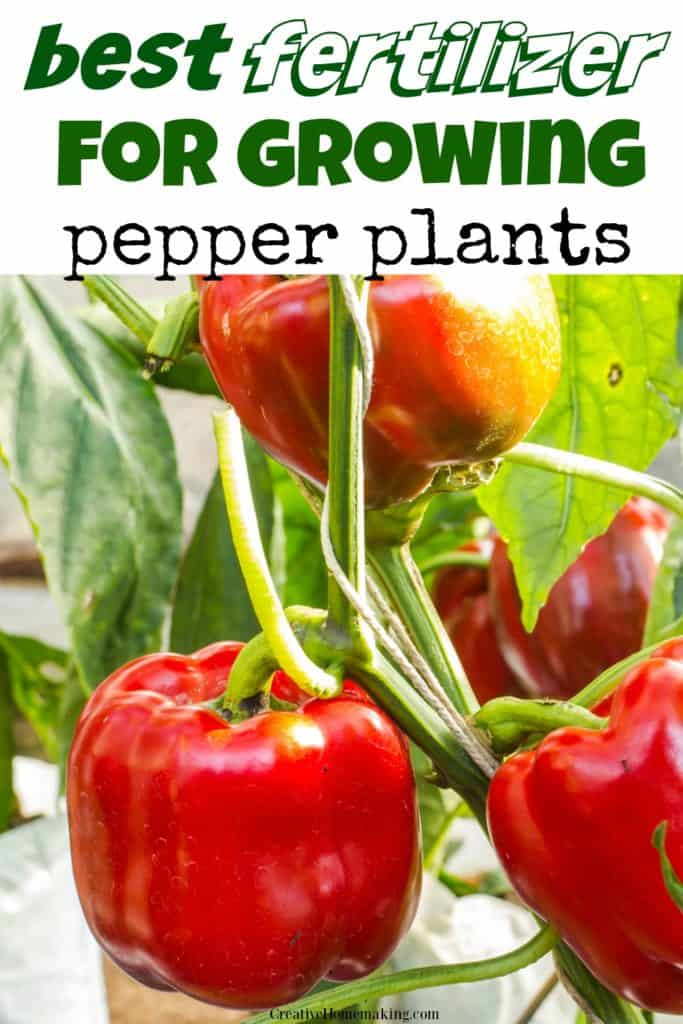Top-Rated Fertilizers for Peppers: Improve Your Harvest Quality
Top-Rated Fertilizers for Peppers: Improve Your Harvest Quality
Blog Article
Just How Plant Foods Play an Important Duty in Cultivating Healthy And Balanced and Bountiful Pepper Crops
Fertilizers work as the backbone of successful pepper cultivation, providing a calculated strategy to nurturing the dirt and cultivating optimum plant development. The detailed dancing between crucial nutrients and the pepper plants' physiological procedures highlights the essential function that fertilizers play in guaranteeing an abundant harvest. From fueling robust origin growth to boosting condition resistance, the influence of plant foods is far-ranging in the farming of productive and healthy pepper plants. Keep tuned to discover the nuanced methods which fertilizers add to the prospering of pepper plants and the sustainable practices that underpin their effectiveness.
Relevance of Nutrient-Rich Plant Foods
The use of nutrient-rich plant foods plays a critical function in boosting the productivity and high quality of pepper plants in modern agricultural practices. Potassium, phosphorus, and nitrogen are primary nutrients that are important for the development and growth of pepper plants.
Insufficient degrees of these nutrients can bring about stunted development, minimized returns, and sensitivity to conditions (best fertilizers for peppers). Nutrient-rich plant foods provide a targeted solution to ensure that pepper plants receive the necessary components for optimum growth and productivity. Additionally, these fertilizers aid boost dirt fertility gradually, creating a sustainable environment for long-term pepper cultivation
Enhancing Plant Development and Growth
To enhance plant growth and development in pepper plants, tactical application of nutrient-rich fertilizers is vital. Fertilizers play a vital function in enhancing the total wellness and efficiency of pepper plants by supplying them with vital nutrients that may be doing not have in the soil. Potassium, phosphorus, and nitrogen are key macronutrients needed in big quantities by peppers for durable growth. Nitrogen help in leafy green development and overall plant vitality, phosphorus sustains root growth and flower development, while potassium adds to disease resistance and fruit top quality.
Iron, for instance, is required for chlorophyll manufacturing, which is crucial for photosynthesis and overall plant growth. Zinc plays a vital duty in enzyme task and hormone synthesis, impacting plant growth and advancement at a mobile level.

Boosting Condition Resistance With Fertilizers
By purposefully including targeted fertilizers, farmers can reinforce the illness resistance of pepper plants, ensuring ideal plant wellness and productivity. Fertilizers including necessary nutrients like nitrogen, phosphorus, and potassium play a vital duty in reinforcing pepper plants' body immune systems, making them much more resistant to numerous conditions. Nitrogen, for circumstances, help in the manufacturing of healthy proteins that are essential for plant defense reaction. Phosphorus adds to root growth, enabling plants to better absorb nutrients and water, hence boosting their capacity to repel conditions. Potassium regulates processes that improve general plant health and wellness, making peppers much more robust against virus.

Making Best Use Of Pepper Return Through Fertilizing
Utilizing a well balanced fertilization approach is vital to accomplishing maximum pepper return and ensuring optimum crop efficiency. By providing peppers with the appropriate nutrients at the ideal time, farmers can considerably boost their yield potential. Phosphorus, nitrogen, and potassium are important components for pepper development, with nitrogen helping in fallen leave and stem growth, phosphorus sustaining root growth and flower development, and potassium advertising overall plant wellness.
To make the most of pepper return, it is important to perform soil tests to establish existing nutrient levels and determine any kind of check out here deficiencies that need to be attended to. Based upon these results, farmers can develop a customized fertilizing plan that satisfies the details needs of their pepper crops. Furthermore, correct fertilization techniques such as split applications throughout the expanding season can ensure constant vitamins and mineral availability for the plants.

Lasting Plant Food Practices for Peppers
In taking into consideration sustainable fertilizer methods for peppers, it is imperative to concentrate on long-term dirt wellness and ecological stewardship in conjunction with taking full advantage of plant performance. One key strategy is the usage of natural plant foods such as compost, manure, or cover crops, which not only provide vital nutrients to the peppers but likewise contribute to dirt framework and microbial activity. best fertilizers for peppers.
Furthermore, accuracy agriculture techniques, such as soil screening and targeted nutrient applications, can aid enhance fertilizer use, guaranteeing that peppers get the nutrients they need without excess runoff into rivers. This not only benefits the setting by decreasing contamination however likewise saves prices for farmers by minimizing waste. By taking on lasting plant food methods, pepper growers can safeguard the health and wellness of their plants, soil, and surrounding environments for future generations.
Final Thought
Finally, fertilizers are necessary for growing healthy and plentiful pepper plants. best fertilizers for peppers. They offer essential nutrients for plant development and growth, boost disease resistance, and take full advantage of return. see this site By applying sustainable fertilizer methods, farmers can ensure the long-term wellness of their pepper crops and add to a more environmentally-friendly and reliable agricultural system
The intricate dance between crucial nutrients and the pepper plants' physical processes underscores the essential role that plant foods play in guaranteeing an abundant harvest.To maximize plant development and development in pepper plants, calculated application of nutrient-rich plant foods is crucial. Plant foods play an important duty in improving the overall health and wellness and productivity of pepper plants by providing them with important nutrients that might be lacking in the dirt.By purposefully integrating targeted plant foods, farmers can bolster the disease resistance of pepper plants, making certain optimal plant health and performance. Fertilizers including vital nutrients like phosphorus, nitrogen, and potassium play a crucial duty in reinforcing pepper plants' immune systems, making them extra durable to different diseases.
Report this page